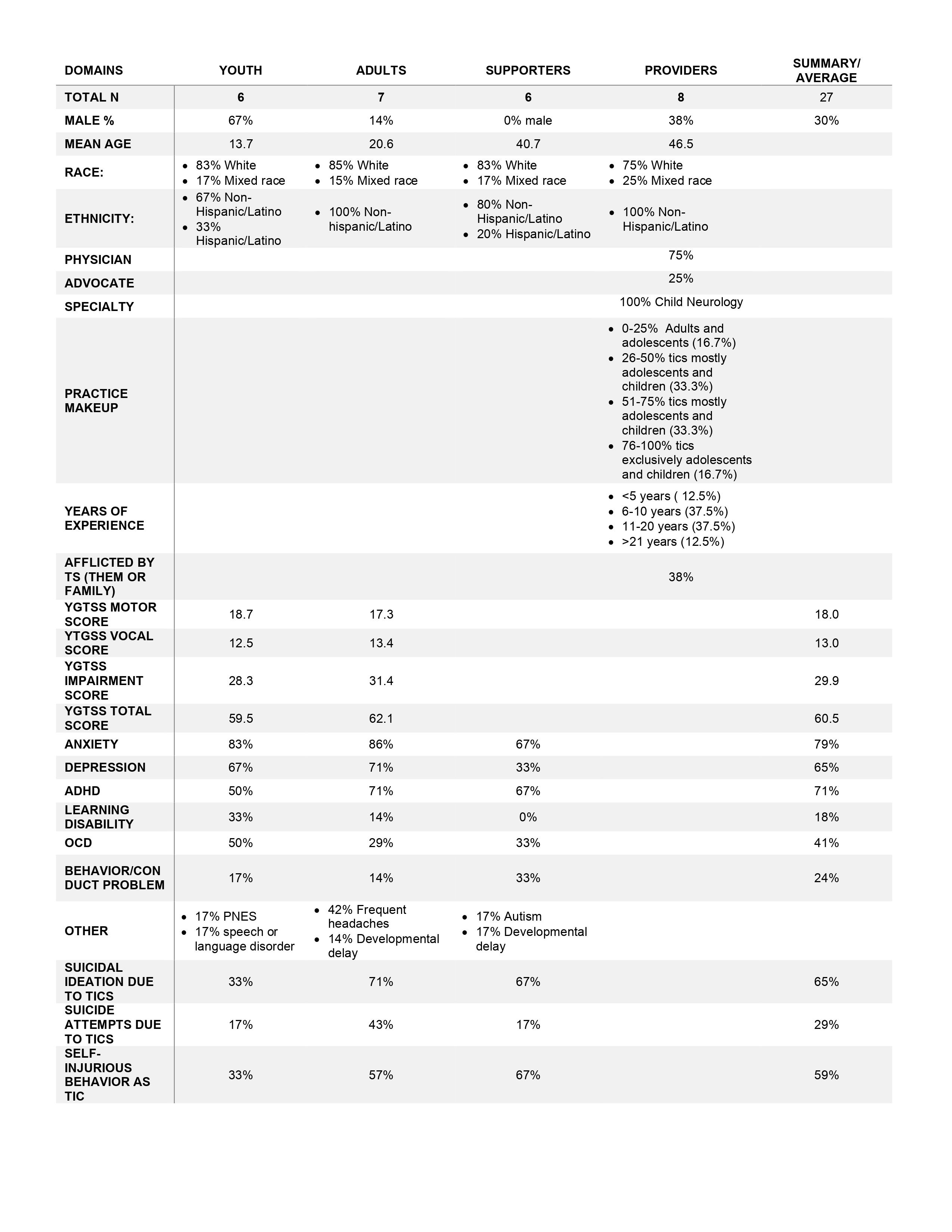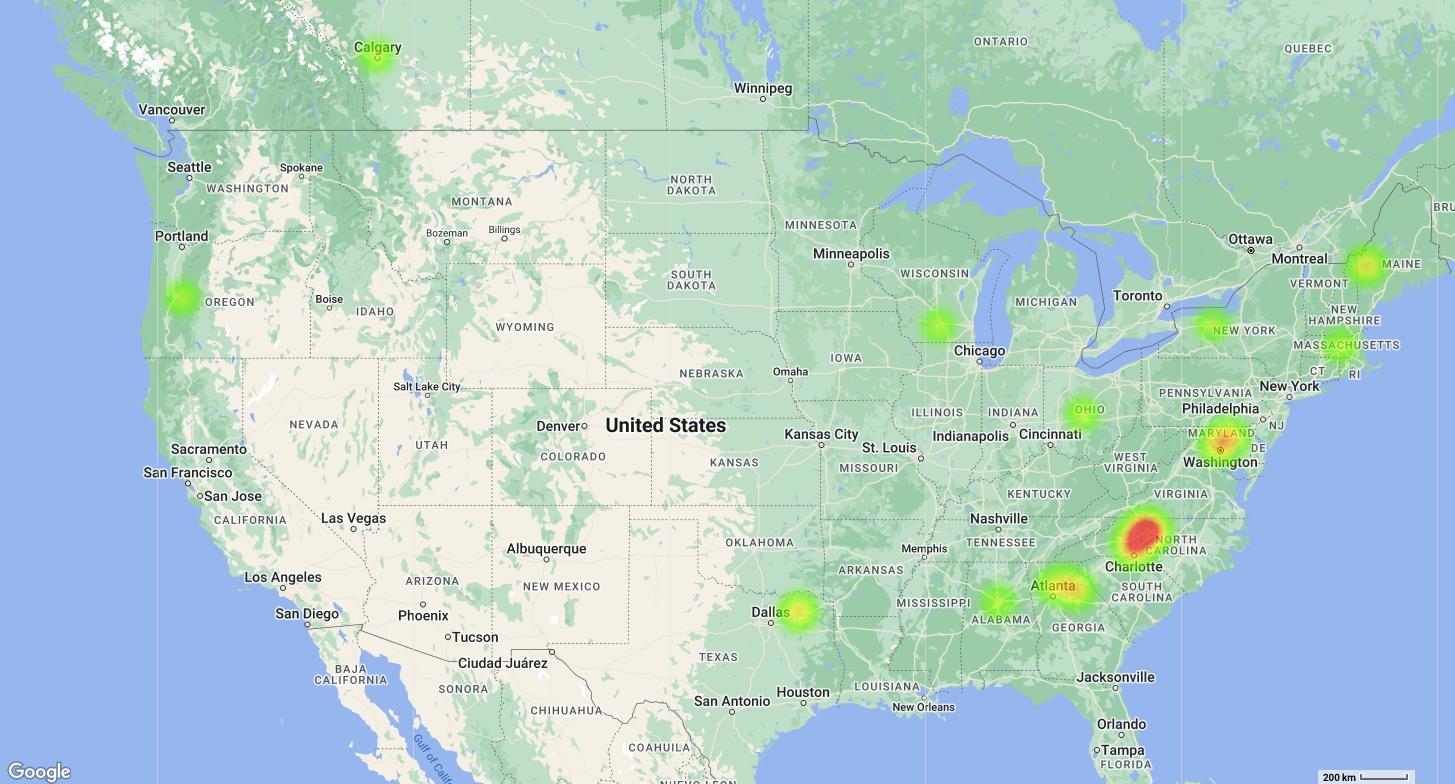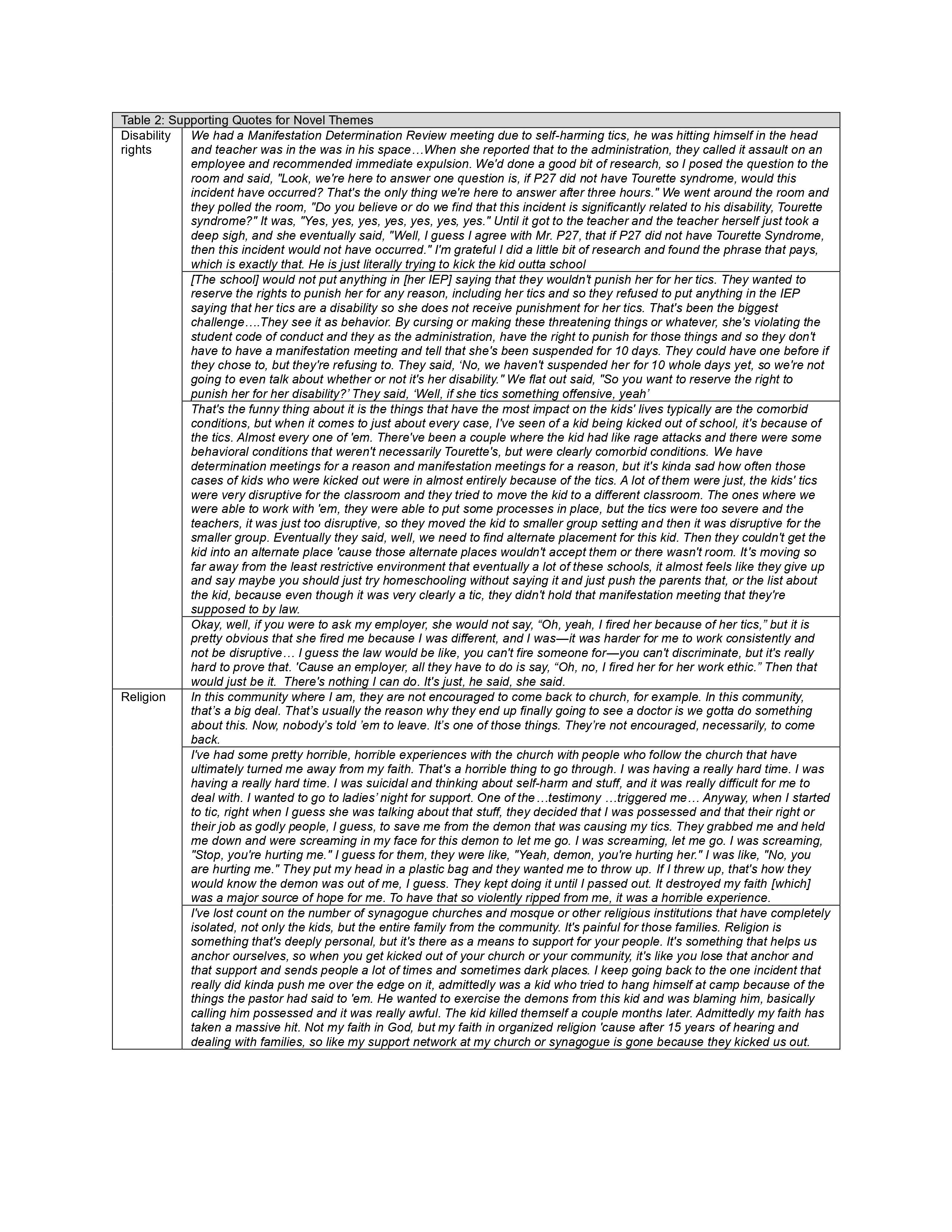Category: Tics/Stereotypies
Objective: To evaluate how individuals with Tourette Syndrome experience stigma.
Background: Persistent Tic Disorders (PTD), including Tourette Syndrome (TS), are neurodevelopmental disabilities characterized by multiple motor and vocal tics present for over a year. PTD affects 1.4 million US youth and adults1. Although many disabilities are impacted by stigma, TS is unique in that tics are both audible and visible to others, causing unwanted attention and negative labeling. Stigma in TS can impact mental and overall health and lead to tic persistence2-6.
Method: In-depth qualitative interviews were conducted individually with three specific cohorts: 1) youth and young adults aged 8-30 with physician or neuropsychologist-confirmed diagnosis of PTD, 2) supporters including caregivers and partners, and 3) medical providers or advocates. Youth were interviewed with their parents and given time to answer sensitive questions confidentially. Interviews were conducted in-person or digitally (using secure video-conferencing software), by participant preference, and lasted 45-90 minutes. Interviews were recorded, transcribed verbatim, and de-identified. Rigorous and accelerated data reduction (RADaR) was used for preliminary analysis.
Results: A total of 25 qualitative interviews were conducted between March 2023 and February 2024 [Table 1, Figure 1]. All cohorts felt TS was misunderstood, creating an opportunity for stigma at multiple levels. All cohorts reported difficulty with navigating disability rights, particularly in the educational setting. Despite disability awareness, certain types of tics are less accepted in society, tics can be met with discipline or negative reactions, and can impact the whole family. Findings suggest that when more complex tics were perceived as offensive to other protected classes in an educational or work setting, several participants reported the other protected class was favored. The tics were not seen as a disability. A second finding was the lack of support from the religious community, either by exclusion or more extreme beliefs of possession. Individuals’ faith, mental health, and support networks were impacted [Table 2].
Conclusion: Persistent Tic Disorders including TS have a broader impact in the daily lives of those affected. The impact of disability rights and religious community on the TS community should be further explored.
Table 1: Demographics of participants
Figure 1: Heatmap of participants
Table 2: Supporting quotes for novel themes
References: 1. Tinker SC, Bitsko RH, Danielson ML, Newsome K, Kaminski JW. Estimating the number of people with Tourette syndrome and persistent tic disorder in the United States. Psychiat Res. 2022/08/01/ 2022;314:114684. doi:https://doi.org/10.1016/j.psychres.2022.114684
2. Yanos PT, Roe D, Lysaker PH. The Impact of Illness Identity on Recovery from Severe Mental Illness. Am J Psychiatr Rehabil. Apr 2010;13(2):73-93. doi:10.1080/15487761003756860
3. Van Orden KA, Witte TK, Cukrowicz KC, Braithwaite SR, Selby EA, Joiner TE, Jr. The interpersonal theory of suicide. Psychol Rev. Apr 2010;117(2):575-600. doi:10.1037/a0018697
4. Fernández de la Cruz L, Rydell M, Runeson B, et al. Suicide in Tourette’s and Chronic Tic Disorders. Biol Psychiat. 2017/07/15/ 2017;82(2):111-118. doi:https://doi.org/10.1016/j.biopsych.2016.08.023
5. Fernández de la Cruz L, Mataix-Cols D. General health and mortality in Tourette syndrome and chronic tic disorder: A mini-review. Neuroscience & Biobehavioral Reviews. 2020/12/01/ 2020;119:514-520. doi:https://doi.org/10.1016/j.neubiorev.2020.11.005
6. Groth C. Tourette syndrome in a longitudinal perspective. Clinical course of tics and comorbidities, coexisting psychopathologies, phenotypes and predictors. Dan Med J. Apr 2018;65(4)
To cite this abstract in AMA style:
J. Martindale, J. Carson, K. Reilly, K. Pring, L. Chapman, J. Salsman, S. Daniel, S. Rapp, R. Strowd, E. Storch, J. Mink. Experiencing Life with Tourette Syndrome: The Invisible Effects of Tics [abstract]. Mov Disord. 2024; 39 (suppl 1). https://www.mdsabstracts.org/abstract/experiencing-life-with-tourette-syndrome-the-invisible-effects-of-tics/. Accessed December 20, 2025.« Back to 2024 International Congress
MDS Abstracts - https://www.mdsabstracts.org/abstract/experiencing-life-with-tourette-syndrome-the-invisible-effects-of-tics/



